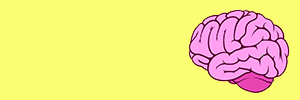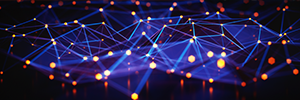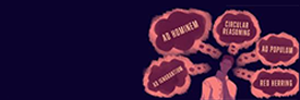|
|
| (128 intermediate revisions by the same user not shown) |
| Line 2: |
Line 2: |
| {{Main Page - new design/header}} | | {{Main Page - new design/header}} |
| {{Main Page - new design/navigation}} | | {{Main Page - new design/navigation}} |
| <div id="home-content"> | | <br /><div style='text-align: center;'>'''This Open-Source Wiki is upheld by an anonymous group of professional scientific moderators. As a group, we induce [[Pivotal Mental States|neuroplastic states]], review [[Sci-hub|open scientific literature]] and edit this Wiki. We offer a bounty for any errors you might find, to claim, post on our open [https://www.reddit.com/r/burnzero/comments/vur78q/bounty_find_a_factual_error_on_burnzerocom_get_10/ subreddit].''' </div> |
| ''This Wiki is being maintained by an anonymous group of moderators, its primary mission is to shake off old ways of thinning and use openly accessible, authoritative data from [[Sci-hub]] to generate better solutions to problems which affect [[We|us all]]. We offer a bounty for any errors you might find, to claim, post on our [https://www.reddit.com/r/burnzero/comments/vur78q/bounty_find_a_factual_error_on_burnzerocom_get_10/ anonymous subreddit] if you would like to contribute further [[Mailing list|join our mailing list]].'' | |
|
| |
|
| <hr /> | | <hr /> |
|
| |
|
| The [[ecological crisis]] demands a radical transformation of modern lifestyles, however, we are all [[Cognitive dissonance|reluctant to change]]. Inducing [[Pivotal Mental States]] can help on an individual level however it is our organisational systems which ultimately govern the fate of our biosphere. [[Corporation|Corporations]] are rushing to solve the crisis, however, whilst many have good initial intentions their efficacy is often limited by their primary tenet of unfettered profit maximisation. This dynamic pits easily obtainable, negative [[Externalities|externality]] generating profit against more the creation and maintenance of positive externalities. When this dynamic plays out in a [[Hyper Liquid|hyper-liquid]] market such as the internet, [[Nash Equilibrium|Nash's equilibrium]] explains why most companies adopt a strategy of avoidance of the loss in revenue from lowering negative externalities by opting for lower cost [[greenwashing]] strategy. A simple remedy would be to remove the profit incentive and form a Not For Profit (NFP) however, this, for [[Why NFPs Dont Work|various reasons]] generates top heavy, ineffective institutions. ''This then begs the question, is there a way to design a new, efficient, self perpetuating [[Machines|machine]] which does [[Relativity of ethics|good]]?''
| | <div style='text-align: center;'>[[The Objectivity Assumption|We tend to perceive our inner, subjective reality as a replica of the objective one]]. However, evolution has shaped human sensory and interpretation systems to guide [[Adaptive Action|adaptive action]], not to show us the true nature of reality. These interpretation systems contain a range of energy saving [[heuristics]] called [[Cognitive Biases|cognitive biases]] which commonly exhibit as systematic errors in thinking'''.''' </div><hr />'''<big>Recent updates</big>''' {{Special:RecentChanges/10}} |
| | |
| When the concept of robotics was first invented, Isaac Asimov imagined the creation of autonomous intelligence in the form of androids however, a conundrum quickly arose. If a machine is developed which has autonomy and was sufficiently enabled, how can we ensure that it primarily does no harm to humans? Without any protective laws, a machine with the purpose of purely making money will destroy everything in its path to achieve its goal. As such, Asimov developed the ''Four'' laws of robotics, which meant any new robot created had to follow distinct uneditable ethical rules which were enabled to protect humans from the ruthlessness of machines:
| |
| | |
| * '''Zeroth Law''' - A robot may not harm humanity, or, by inaction, allow humanity to come to harm.
| |
| * '''First Law''' - A robot may not injure a human being or, through inaction, allow a human being to come to harm
| |
| * '''Second Law''' - A robot must obey the orders given it by human beings except where such orders would conflict with the First Law.
| |
| * '''Third Law''' - A robot must protect its own existence as long as such protection does not conflict with the First or Second Law.
| |
| | |
| ''So, if corporations are types of [[machines]] approaching [[Autonomous Organisations|autonomy]] with the aid of new technology, could these laws be adopted to ensure any new machine only does good?''
| |
| | |
| As of yet, full autonomy does not exist, any business therefore must adopt at least one human to at least turn the machine off and on again if it fails. However, humans themselves make errors, therefore from a design sense from the outset, the weakest necessary part needs not to be ignored but dealt with first. [[Transparency]], which many profit maximisers might think is the WORST thing you can do in business, as profit is seen as the lifeblood and is often made behind closed doors. However, its Burnzero's argument that in a hyper liquid sector with low barriers to entry such as purely digital middleman services such as tickets sales, online education, and cloud services, increasingly the only point of differentiation is within the eco/ethical space.
| |
| | |
| This opportunity seems only available to ethically unencumbered newcomers<ref>'''Can Corporations Have (Moral) Responsibility Regarding Climate Change Mitigation?''' Journal of Ethics, Policy & Environment, Volume 20, 2017 - Issue 3. Pages 314-332. First published online: 18<sup>th</sup> October 2017, accessed online on 4<sup>th</sup> October 2022 via https://www.tandfonline.com/doi/full/10.1080/21550085.2017.1374015</ref>, as can be seen with [https://stripe.com/gb/climate Stripe's Climate Service] vs the more traditional services like Paypal, [https://www.humanitix.com/impact Humanitix] vs [https://www.eventbrite.com/ Eventbrite] or even in the success of companies like [https://www.patagonia.com/our-footprint/ Patagonia]. However, only a minority of companies in each sector are forging ahead, one elephant in the room remains, the authenticity of ethical claims. This has led to the establishment of an abundance of startups flooding the space to certify each other as supremely "''green''" or "''ethical''". The prime example of this is the "[https://www.bcorporation.net/en-us/ B Corporation]" which relative to traditional businesses has done a world of good, however, these types of governance systems mask a fundamental conflict of interest within the commercial third party governance space.
| |
| | |
| For instance, if a company pays a third party to certify itself as ''green'', what if after the payment has been taken the third party fails to certify the company under the criteria? In a market with only one certifier (such as the government in the medical sector) the company has no choice but to fold. However in an open market, where there is little to no regulation and a bevy of certifiers a negative feedback loop is generated where the lowest price with the lowest standards means the this type of industry self regulation is ultimately ineffective.
| |
| | |
| ''So where to go from here?'' Government eco/ethical regulation would be great, but that isn't going to happen as meeting the Paris Agreement requirements will require a contraction in living standards GDP. i.e. any governmental democratic power is massively reliant on lots of non-eco/ethical activity (See most recently September 8, 2022: "[https://www.reuters.com/business/energy/exclusive-uk-announce-dozens-new-north-sea-oil-gas-licences-sources-2022-09-07/ UK to announce dozens of new North Sea oil and gas licences]"). Self, third party and governmental regulation isn't going to solve this problem. ''So instead of putting a plaster on the symptoms, perhaps its the machines themselves that are in error? Perhaps a new, competitive machine can be designed that avoids these issues from inception?''
| |
| | |
| == The Transparent Company ==
| |
| The [[The Transparent Company|T-Corp]] is an experimental new type of company which intends to solves many of these issues. Key attributes include:
| |
| | |
| === Operations ===
| |
| The T-Corp performs all actions through a series of hierarchical, uneditable [[Tenet|tenets]]. The primary tenet is [[Transparency]], the next three tenets are setting its intention to do good, whilst aiming to reduce human and error by developing towards complete autonomy. The tenets runs alongside an editable [[Transparent incorporation statement|incorporation statement]] published on github and burnzero.com which is protected from retrospective falsification of records via its own automated open source API Twitter bot publishing updates to its dedicated account: [https://twitter.com/transparent122 Transparent122].
| |
| | |
| === Finance ===
| |
| The [[The Transparent Company|T-Corp]] generates funds primarily from automated sources the first two sources are https://prepare.online/) and https://mushroomexam.com/. To meet the transparency requirements, all revenues are centrally received into an openly published Stripe account which is embedded into the Decentralised Repository (burnzero.com).
| |
| | |
| === Strategy ===
| |
| 30% of all funds recieved from
| |
| | |
| == Current Progress ==
| |
| The primary investment in setting up the DSAO is complete and up and running (. The current rate-limiting step is the [[Open Source|open source]] publication of [[Transparent incorporation statement|The Transparent Company Incorporation Statement]] via GitHub and subsequent Australian ABN Incorporation. Once complete, this will lead to the creation of a bank account which will then lead to the Stripe account which will then lead to revenue generation which will fund the [[Proposals|Proposal]] and [[Commissions|Commission]] system which will help publicize this project.<hr/>
| |
| </div>
| |
|
| |
|
| <div id="home-content" class="home-grid"> | | <div id="home-content" class="home-grid"> |











